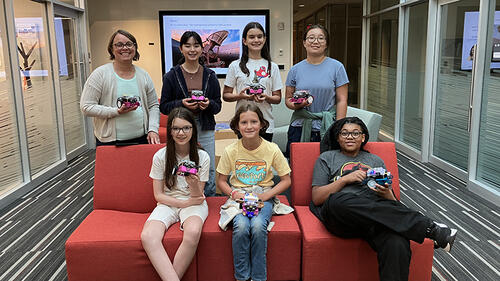
Yale’s Wright Lab hosted a four-day program in August for eight middle school students—ranging from 6th through 8th grade— called “Summer Explorations in Science, Technology, and the Natural World”. Participants learned about programming and robotics through hands-on projects and group-led exploration, attended lectures by Yale scientists, and engaged in guided tours of both Wright Lab and the Yale Peabody Museum.
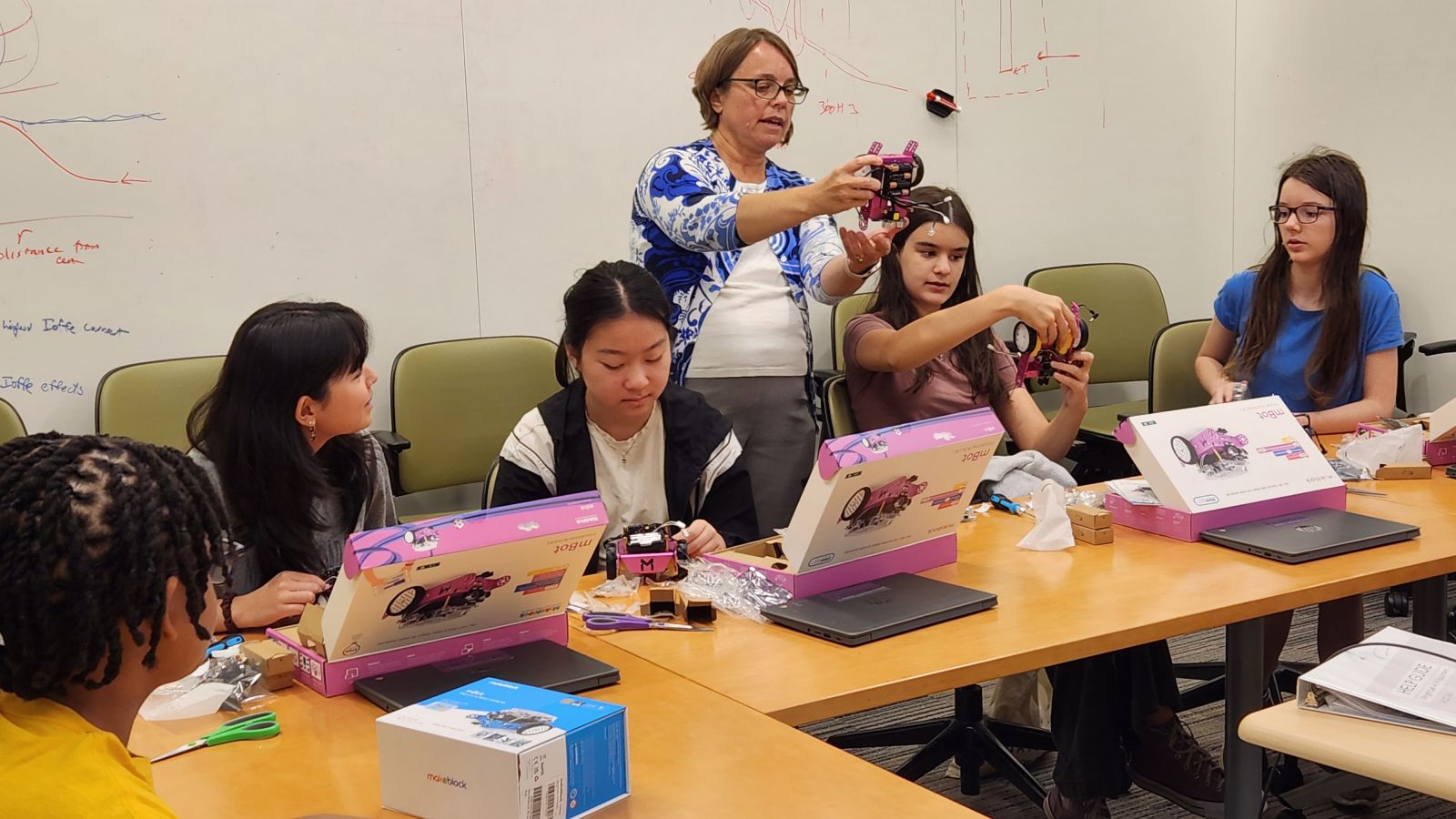
Throughout the program, the students participated in hands-on robotics activities led by Lynn Connelly, a science teacher from Hopkins School who teaches physics and robotics and advises the Hopkins robotics team. Activities included assembling a robot from a kit and then programming the robot to play soccer, write using a pen, become a solar robot, change color, avoid obstacles on a course, and play songs. For a capstone project of the program, the students created a “smart” city and programmed the robots to drive safely around the city autonomously.
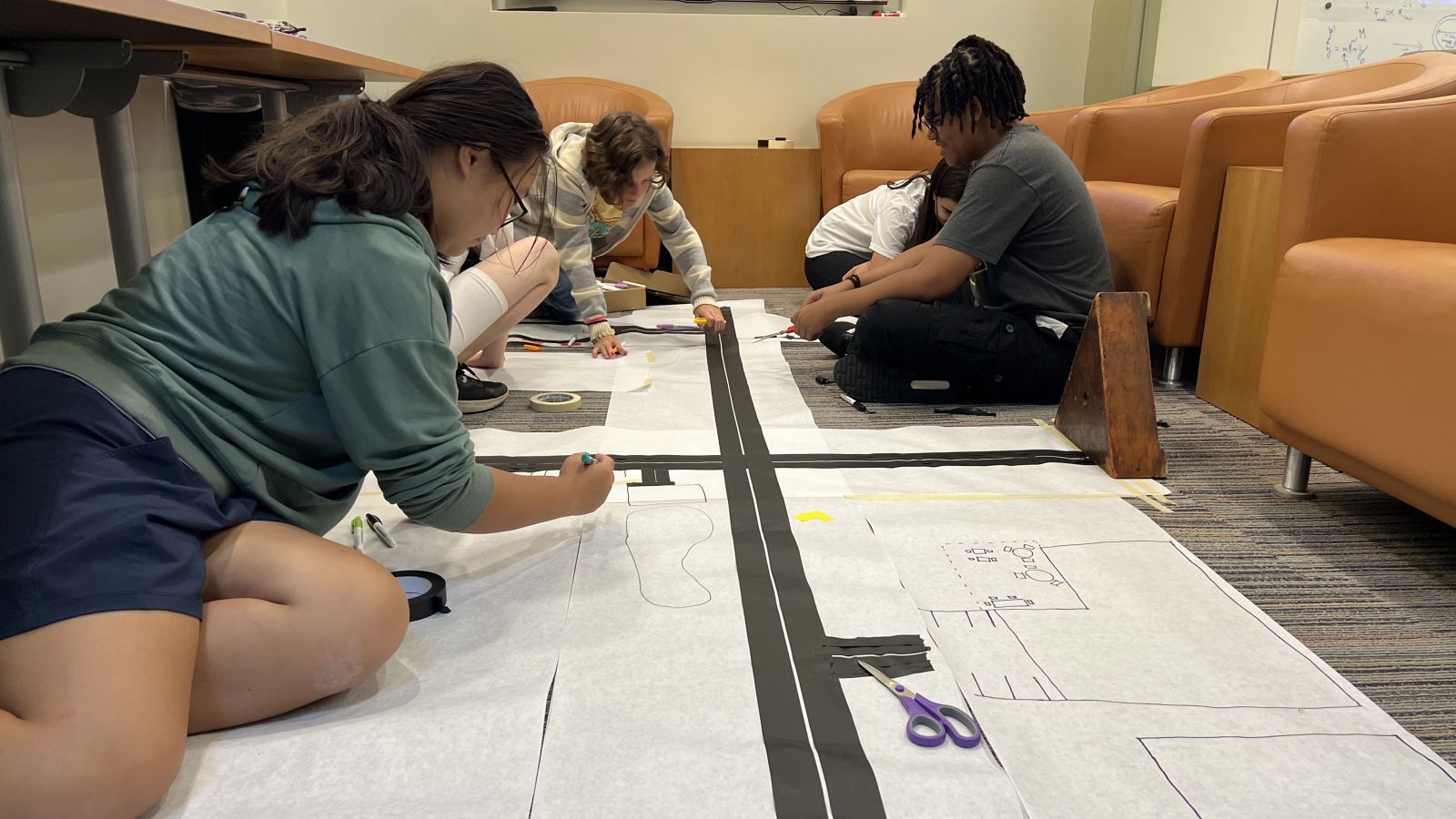
The students also interacted with Wright Lab graduate student volunteers, who assisted with the hands-on activities and led short lectures in topics of physics, such as the physics of light, color, sound, and acceleration. Volunteers included: Eunice Beato, Eleanor Graham, Claire Laffan, Cecily Lowe, Samantha Pagan, and Molly Watts.
Connelly said, “The kids were super excited about the combination of physics and robotics, and it made the camp really unique.”
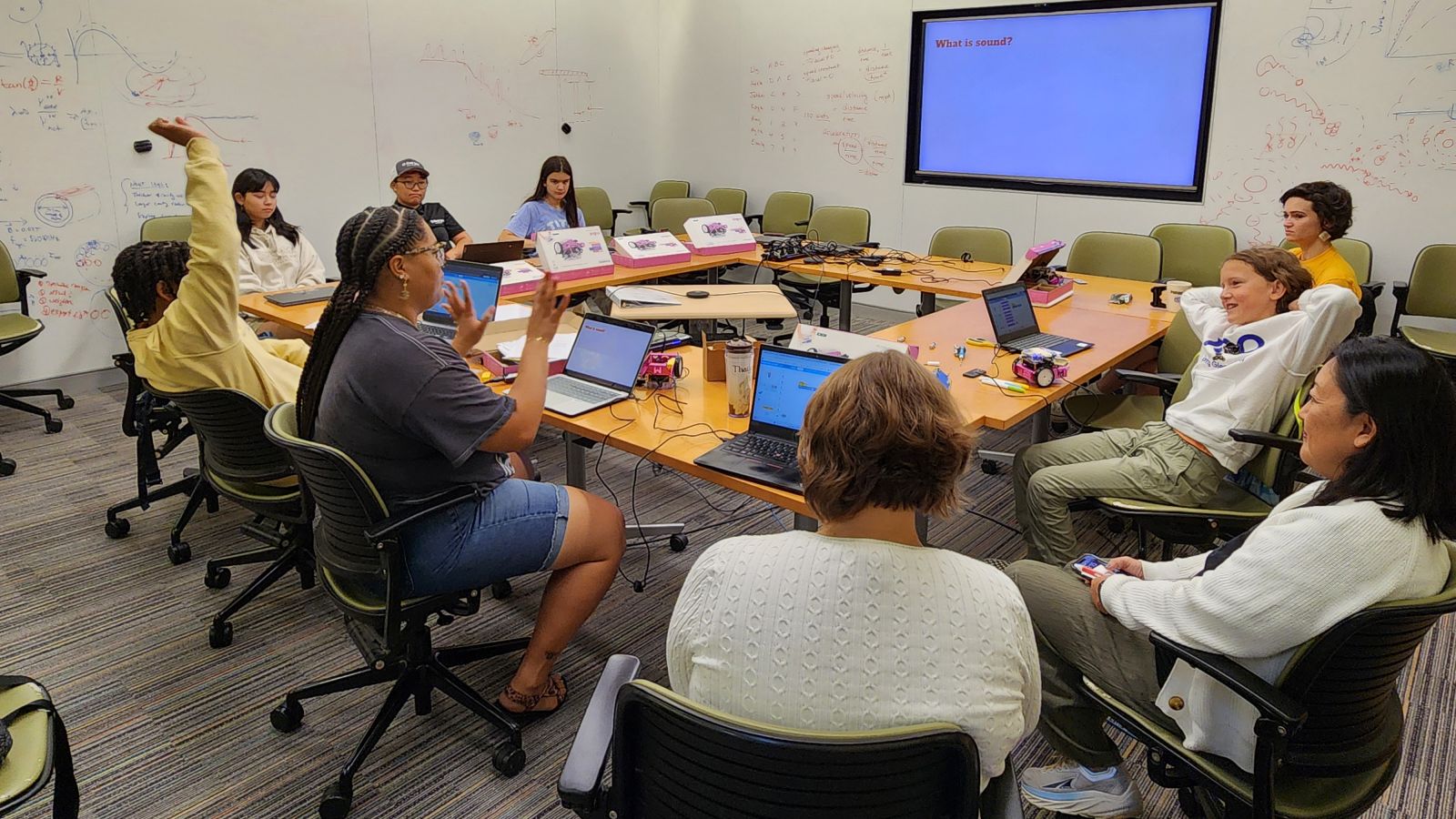
Each day, the students also experienced an enrichment activity. Theodore Kim, professor of Engineering & Applied Science and two-time Academy Award-winner gave a lecture on “Computer programming, art, and animations”. Amaleah Hartman, lecturer in Molecular, Cellular, and Developmental Biology, gave a lecture on “Stem Cells”. Participants also toured Wright Lab, led by Lowe and Pagan; and the Yale Peabody Museum, led by Alexi Baker, collections manager for the History of Science and Technology at the Peabody.
Beato said, “My favorite part about helping during the program was just seeing how excited and curious the kids were. I think getting excited about science and having people support that curiosity at a young age is very important in giving kids the confidence to continue in STEM! So I was glad to be a part of the process for the kids that were here this summer.”
Beato continued, “I can’t wait for next year when we can foster and nurture the same science curiosity in another group of excited students.”
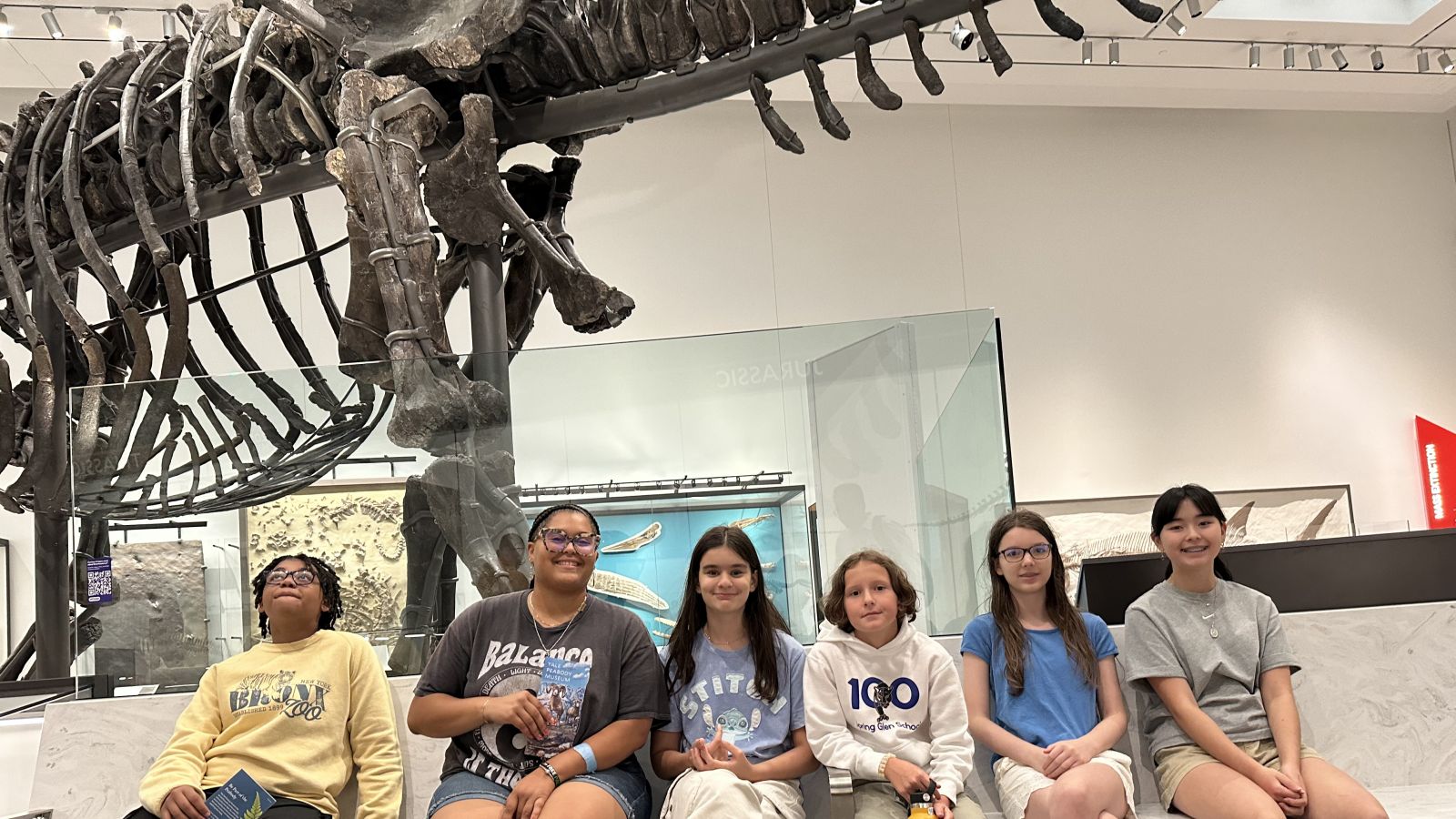
The program was conceived and coordinated by Karsten Heeger, Eugene Higgins Professor and Chair of Physics and Director of Wright Lab; and Reina Maruyama, professor of physics and astronomy and a member of Wright Lab. Paul Noel, Yale Physics technology services specialist and instructional tech served as technical advisor. Yale Physics senior administrative assistants Jenn Arnone and Camille Simeone and Wright Lab program manager Victoria Misenti provided administrative and logistical support.
Maruyama said, “We are very excited we were able to initiate and support this program at Wright Lab this summer. Middle school years are a perfect time to try out new things, especially in a supportive environment. Students of this age range have the foundation to appreciate and carry out complicated problem solving, and I was so happy to see them collaborating and working together—just as we do for our physics experiments at Wright Lab—to create code, move their robots, test laws of gravity, and create music and a mini city.”
Maruyama continued, “I’m looking forward to see these middle schoolers continue to grow and create.”
The 2024 Summer Explorations in Science, Technology, and the Natural World program was sponsored by the Yale Department of Physics, the Michele Dufault Endowment for Yale Women in Science, the Yale Wright Laboratory, and Yale University.
Images within the article were taken by Reina Maruyama, Victoria Misenti, and Molly Watts.

